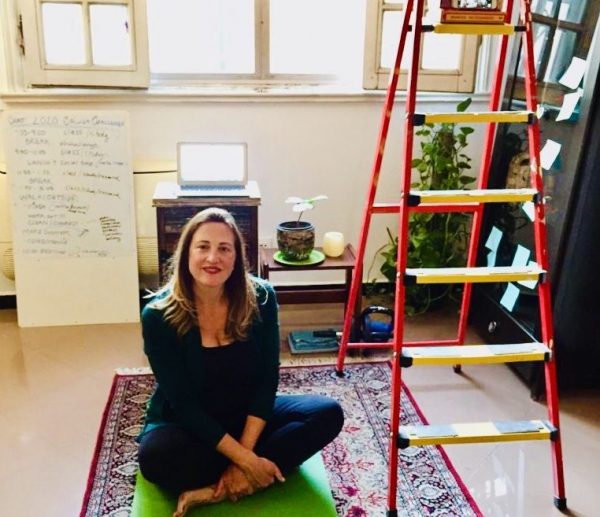Center for Student Well-Being teaches the art of giving and receiving criticism
AUC’s Center for Student Well-Being organized a workshop in early March to discuss how to accept criticism and the ideal way to deal with it.
Ola Morsy, psychology professor and the chief clinical officer at AUC, explained that there are many students at AUC who said they struggle with taking criticism from instructors and professors.
“Criticism can be subjective most of the time. People should try to not take it personally,” said Morsy.
Morsy mainly covered two sides of criticism – the way people should offer constructive criticism to others and the way people should receive that criticism.
Throughout the talk, Morsy used the term “sugarcoating” multiple times, explaining how important it is to sugarcoat criticism so the individual does not feel attacked. She argued that being harsh and using a condescending tone when giving criticism is the worst approach to take.
Celina Maged, an Integrated Marketing Communication (IMC) graduating senior, said that how well he takes feedback always depends on how professors give criticism.
“If it’s constructive and I feel like they’re genuinely giving advice for me to learn, then that’s good. But if it’s not constructive, then it bothers me a lot and demotivates me, ” said Maged.
Morsy discussed the importance of finding a balance when it comes to giving criticism so that it does not seem too violent or too friendly.
“There is a gray space between being too aggressive and harsh and being clear, honest, and straightforward while making the person feel comfortable with constructive criticism,” Morsy told The Caravan.
Morsy also explained that people, especially students, have to find a way to deal with criticism in a healthy way because it is inevitable. Being university students or working at institutions may drain one’s confidence and self-esteem if they find it painful or difficult to deal with criticism.
On the other hand, the key is to turn this into something positive by recognizing that people in general or, in this case AUC professors, are constantly providing students with constructive criticism because they are trying to motivate them to be better, not because they have something personal against them.
At the Center for Student Well-Being, there are several services that aim to support the mental health and general wellness of students, including those with established disabilities, and help them cultivate the necessary skills and resilience to succeed in their academic, professional, and personal lives. Some of these services include individual and group therapy, mental health evaluations, and workshops covering diverse subjects.
“I don’t like to refer to it as criticism. I tend to use the word feedback more. People have to receive feedback from other people around them because if the only feedback you are getting is from yourself, you don’t have room to grow,” Laila Fahmy, a counseling center advisor at the Center for Student Well-Being, told The Caravan.
Fahmy clarified that people tend to avoid criticism because the mind does not like to contradict something it is used to. Accepting criticism in order to personally develop is like a process of input and output.
She elaborated that part of this input is getting feedback from other individuals. The person then chooses to either take that feedback and learn from it or ignore it and be biased towards themselves.
For Omar El Farra, a senior majoring in Business Entrepreneurship, how well he will accept criticism depends on the person giving that feedback.
“If it is a person, or in that case a professor, I know well and respect, I will be paying close attention to that constructive criticism and see what I can apply and improve,” explained El Farra.



